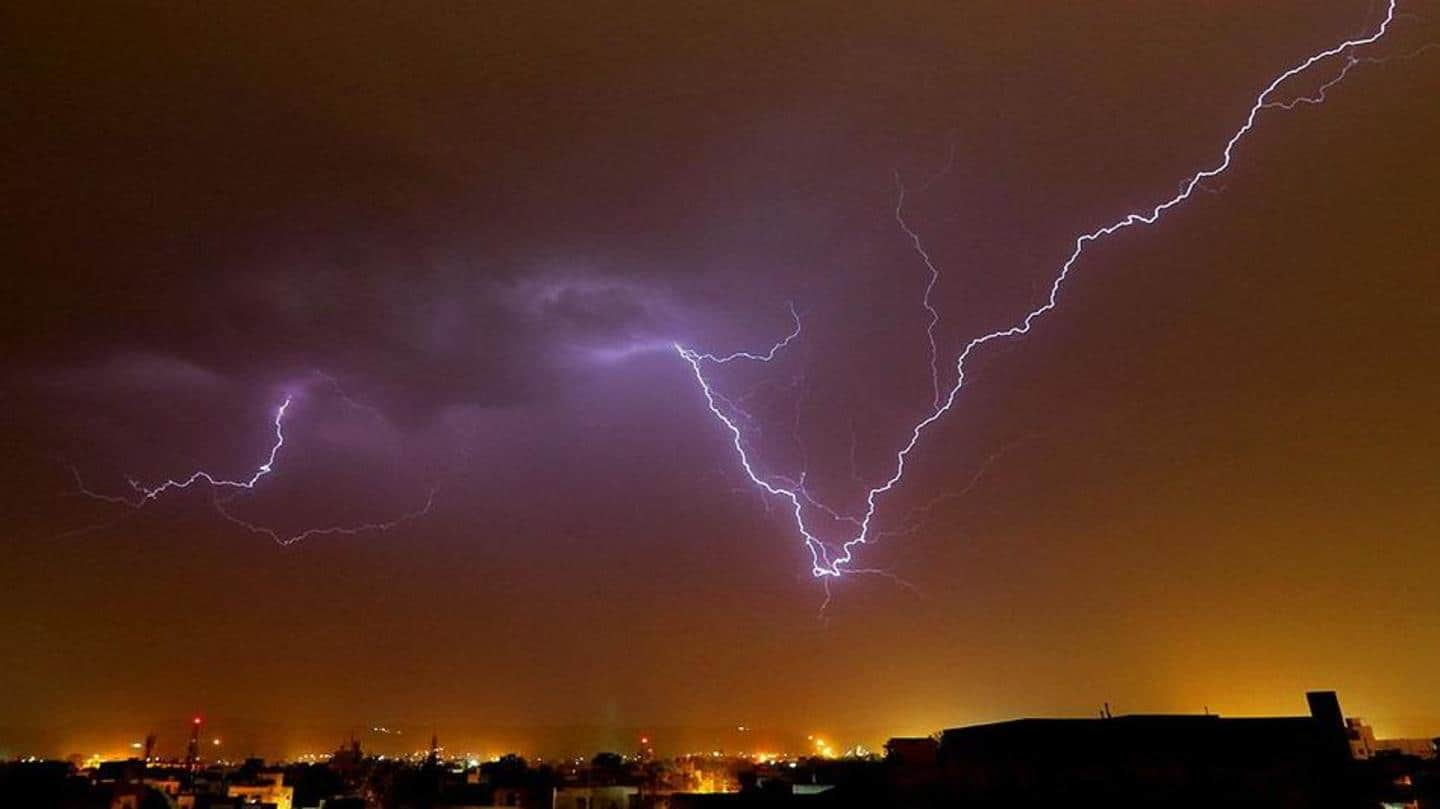
Do you know what to do when lightning strikes?
What's the story
In July, lightning strikes killed around 74 in Rajasthan, Uttar Pradesh, and Madhya Pradesh in a single day, and since 2004, lightning strikes have claimed at least 2,000 lives in India every year.
As per National Disaster Management Authority (NDMA), lightning strikes, combined with thunderstorms, are the single-largest killer as far as natural disasters are concerned.
But what to do in case lightning strikes?
Dos
When lightning strikes, best solution is to stay indoors
The smartest way to protect yourself from lightning is to stay indoors.
Houses, workplaces, shopping malls, hotels, etc., are safe shelters.
Ensure that you have updated information on local weather reports from trusted sources through social media, radio, and TV.
By any chance, if you are outdoors, stay inside a vehicle/car that has closed roof and windows.
You can also stand inside a building.
Don'ts
Avoid taking shelter underneath isolated trees, long poles
Avoid open places, mountain ridges, and peaks during pre-monsoon and monsoon months as these are highly prone to lightning.
If there's nowhere to go, curl up into a ball and cover your ears and eyes, but DO NOT lie flat.
Keep a safe distance from water bodies and pipelines.
Also, don't take shelter under isolated/tall trees or long poles because high altitudes attract lightning.
Observation
Here's why lightning strike-associated deaths have increased this year
Experts noted that this year, lightning strikes were more than usual because of the "ten-day break in monsoon," leading to a "significant" increase in surface heating.
"As the monsoon is reviving, moisture levels...also increased. This is the most favorable condition for development of thunder clouds...which leads to lightning strikes," explained SD Pawar, Project Director, Thunderstorm Dynamics, Indian Institute of Tropical Meteorology, Pune, in July.
Precautions
Don't be negligent, proper awareness will keep you safe
It's not guaranteed that staying indoors is totally safe, so it's a must to close and stay away from windows, concrete walls, and electric lines.
Avoid bathing and washing utensils. Don't crowd indoor spaces or sheltered outdoor areas to ensure minimal damage in case of an accident. Unplugging electronic devices is recommended.
You can use cellphones but not corded phones.
Lastly, spread the word!